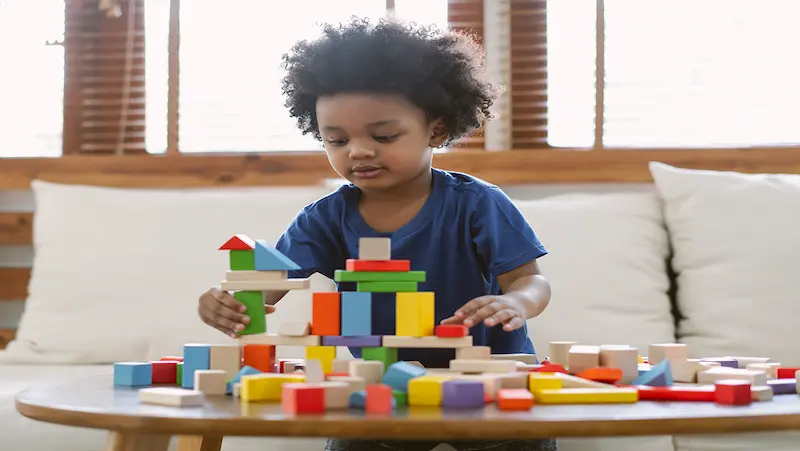In the intricate dance of life, one role takes center stage, casting a profound impact that resonates throughout generations – that of a mother. Motherhood tips, with its gentle touch and unwavering love, holds the power to shape the very essence of a child’s existence. It’s a journey laden with significance, as a mother becomes the first architect of a child’s world, molding character, instilling values, and weaving the fabric of their emotional landscape. In the tapestry of life, the maternal thread is not just a mere strand; it’s the vibrant hue that paints the canvas of a child’s future. The significance of motherhood lies not just in the biological connection but in the emotional and nurturing haven it provides, laying the foundation for resilience, compassion, and an enduring sense of belonging.
Table of contents
Nurturing Emotional Well-being
In the hustle and bustle of daily life, it’s easy to overlook the profound impact emotional well-being has on our little ones. The truth is, a child’s emotional health lays the foundation for a happy and fulfilling life. So, let’s dive into why it matters and explore some down-to-earth ways to foster those warm and fuzzy feelings.

The Heart of the Matter: Why Emotional Health Matters
Imagine emotions as the colorful threads weaving the fabric of your child’s life. From the excitement of a new adventure to the comfort of a warm hug, these emotions shape their experiences. But it’s not just about feeling good; emotional well-being is the compass that guides them through challenges, helping build resilience and coping skills.
When kids understand and manage their feelings, they navigate friendships, school, and family with greater ease. It’s like giving them a superpower – the ability to face life’s twists and turns with a smile.
Building Bridges: Practical Tips for Strong Emotional Bonds
Now that we’ve touched on why emotional health is crucial, let’s roll up our sleeves and get practical about building those heart-to-heart connections.
- Quality Time Matters Most: In our fast-paced world, time is a precious commodity. Allocate undivided attention to your child regularly. Whether it’s a bedtime story, a game night, or a simple chat about their day, these moments build a secure foundation for emotional well-being.
- Listen with Your Heart: Communication isn’t just about words; it’s about truly listening. When your child speaks, put down the phone, make eye contact, and show genuine interest. This sends a powerful message that their thoughts and feelings matter, fostering a sense of validation.
- Express Emotions Openly: Children learn by example. Share your feelings with them – the joy, the frustration, the excitement. This openness creates a safe space for them to express their emotions without fear of judgment. Remember, it’s okay not to have all the answers; sometimes, just being there speaks volumes.
Talk the Talk: The Power of Open Communication
In the journey of nurturing emotional well-being, open communication is the secret sauce. It’s the bridge that connects hearts and minds, fostering trust and understanding.
Encourage your child to express their feelings, even the tough ones. Let them know it’s safe to share without facing consequences. This open dialogue not only strengthens your bond but also equips them with the skills to navigate emotions in the future.
Promoting Physical Health
In the hustle and bustle of our daily lives, it’s easy to neglect the one thing that keeps us going strong – our physical health. While we can’t control everything, there are some key factors that play a crucial role in keeping our bodies in top-notch shape. So, grab a seat and let’s talk about the simple yet powerful ways to promote physical well-being.

Embracing the Power of Nutrition and Exercise:
Imagine your body as a high-performance car; it needs the right fuel to function at its best. That’s where nutrition comes in. It’s not about dieting or counting calories, but rather about making mindful choices. Include a rainbow of fruits and vegetables on your plate, lean proteins, and whole grains. Balance is the key.
Now, let’s talk about the magic wand of physical health – exercise. You don’t need to be a gym rat or a marathon runner to reap the benefits. Find something you enjoy, whether it’s a brisk walk in the park, dancing like nobody’s watching, or even trying your hand at yoga. The goal is to get that heart pumping and those muscles moving.
We get it; life gets busy. Juggling work, family, and everything in between can make finding time for exercise seem impossible. But here’s the secret – it’s not about finding time; it’s about making time. Even if it’s just a quick 15-minute workout or a stroll around the block, every little bit adds up. Your body will thank you.
Expert Advice for a Healthy Lifestyle:
We all have that friend who seems to have cracked the code of a healthy lifestyle. Well, we’ve gathered some pearls of wisdom from the experts to help you on your journey. First and foremost, listen to your body. It’s like your own personal GPS, guiding you on what it needs. If you’re tired, rest. If you’re hungry, eat. Simple, right?
Sleep is another unsung hero of physical health. It’s not just about quantity but also quality. Aim for 7-8 hours of good, uninterrupted sleep. Your body does its best repair work while you’re catching those Zs, so make it a priority.
And don’t forget to stay hydrated. Water is the unsung hero of our well-being. It keeps our skin glowing, helps digestion, and is the ultimate elixir for overall health. So, keep that water bottle handy and sip your way to vitality.
The Importance of Regular Check-Ups:
Now, let’s tackle the not-so-glamorous but equally vital aspect of physical health – regular check-ups. Think of it as your body’s maintenance check. Just like you wouldn’t skip your car’s annual service, don’t skip your doctor appointments.
Regular check-ups can catch potential issues before they become big problems. From blood pressure to cholesterol levels, these tests provide a snapshot of your health. It’s not about fearing the unknown; it’s about empowering yourself with knowledge.
And hey, it’s not just about the physical stuff. Mental health is just as crucial. If you’re feeling overwhelmed or stressed, don’t hesitate to reach out for support. Talking to a friend, family member, or professional can make a world of difference.
Encouraging Intellectual Growth
In the hustle and bustle of our daily lives, it’s easy to overlook the profound impact that intellectual growth can have on our overall well-being. Whether you’re a student, a working professional, or someone just navigating the winding roads of life, the journey of continuous learning is one that pays off in more ways than we can imagine.

Embracing the Value of Education and Stimulation
Education is not just about textbooks and classrooms; it’s a lifelong journey of discovery. It’s about cultivating a curious mind that seeks knowledge in every experience. Intellectual growth starts with recognizing the value of education, not as a means to an end, but as a continuous process that enriches our lives.
Take a moment to reflect on your interests and passions. What makes you tick? Whether it’s delving into the mysteries of science, understanding the nuances of history, or immersing yourself in the world of literature, find what resonates with you. Seek out opportunities to learn, be it through online courses, workshops, or simply engaging in meaningful conversations with others.
Creating a Learning-Friendly Environment
Our surroundings play a crucial role in shaping our intellectual journey. Imagine trying to grow a plant in unfavorable conditions – it won’t thrive. Similarly, creating a learning-friendly environment is key to encouraging intellectual growth.
Set up a cozy corner with your favorite books, create a dedicated space for brainstorming ideas, or surround yourself with inspirational quotes that ignite your curiosity. Minimize distractions when you can and embrace technology as a tool for learning rather than a constant source of interruption. Your environment should be a haven for your mind to wander, explore, and absorb new knowledge.
The Significance of Reading and Exploration
One of the simplest yet most powerful ways to foster intellectual growth is through reading. Books are like windows to different worlds, offering perspectives and insights that can reshape our understanding of life. Whether it’s fiction or non-fiction, reading opens up a universe of possibilities.
Take the time to explore topics outside your comfort zone. It’s in the exploration of the unknown that we often discover hidden gems of knowledge. Attend local events, visit museums, or engage in conversations with people from diverse backgrounds. The world is a vast treasure trove of information waiting to be uncovered, and your curiosity is the key to unlocking its secrets.
Closing Thoughts
In the grand tapestry of life, intellectual growth adds vibrant colors and intricate patterns. It’s a journey that transcends age, occupation, and circumstance. By embracing the value of education, creating a conducive learning environment, and immersing ourselves in the joy of exploration, we pave the way for a richer, more fulfilling existence.
Fostering Social Skills
In the whirlwind of raising kids, it’s easy to get lost in the sea of homework, playdates, and extracurricular activities for kids. But amidst the chaos, there’s one aspect of a child’s development that deserves our undivided attention: social skills. These little building blocks play a crucial role in shaping our children into compassionate, cooperative, and conflict-resolving individuals.

The Social Symphony
Social skills aren’t just the cherry on top of the childhood development sundae – they’re the sundae itself. Picture this: your child navigating the intricate world of friendships, team projects, and family dynamics. Social skills are the superpower that equips them to communicate effectively, understand others, and build lasting connections.
Imagine if your child could put themselves in their friend’s shoes, understand their feelings, and lend a helping hand when needed. That’s empathy in action, a cornerstone of social skills. And cooperation? That’s the magical ingredient that turns playground chaos into teamwork and shared laughter.
Expert Tips for Empathy and Cooperation
- Lead by Example: Children are like sponges, soaking up the behaviors they see around them. Demonstrate empathy by actively listening when they share their thoughts and feelings. Show them the power of cooperation by collaborating with others in your daily life.
- Read Together: Books are windows into different worlds, offering opportunities for your child to step into the shoes of characters and experience diverse perspectives. Discuss the characters’ emotions, motivations, and actions to help cultivate empathy.
- Team Building Activities: Engage your child in activities that require teamwork – it could be as simple as cooking together or building a puzzle. These shared experiences teach them the value of cooperation and the joy of achieving goals together.
The Art of Conflict Resolution
Conflict is inevitable, even on the sunniest of playgrounds. Teaching your child how to navigate conflicts not only helps them in the present but equips them with a crucial life skill. Here’s your guide to mastering the art of conflict resolution:
- Teach Active Listening: Ensure your child understands the importance of truly hearing what the other person is saying. Encourage them to paraphrase to confirm their understanding.
- Express Feelings: Help your child put their feelings into words. By expressing emotions clearly, they lay the foundation for understanding and resolution.
- Brainstorm Solutions Together: Instead of imposing solutions, involve your child in finding resolutions. This not only empowers them but also teaches them the collaborative nature of problem-solving.
Conclusion:
In the grand tapestry of life, a mother’s role emerges as the intricate thread that weaves the very essence of a child’s future. It’s not just about the meals she cooks or the bedtime stories she tells; it’s the unseen magic in her hugs, the quiet strength in her presence, and the unwavering love in her gaze. A mother isn’t just a caretaker; she’s the architect of dreams, the first teacher, and the compass that guides a child through life’s twists and turns. In her embrace, a child finds not just warmth, but the roots of resilience and the wings of ambition. The significance of a mother’s role in shaping a child’s destiny is profound – she not only nurtures bodies but molds souls. In her simple everyday acts, a mother crafts a legacy that echoes in the laughter, resilience, and kindness of the generations she shapes. Indeed, the influence of a mother reaches far beyond the immediate, resonating in the symphony of a child’s life for years to come.
To get your hands on more such articles, educational content, and free resources on coding classes for kids, online robotics classes for kids, game development, etc., check out the BrightCHAMPS Page now!
Frequently Asked Questions
A1: Prioritize open communication, set clear boundaries, and create a loving and supportive home environment.
A2: Emphasize self-acceptance, focus on inner qualities, and model a healthy attitude towards your own body.
A3: A balanced diet ensures proper growth and development, so include a variety of nutritious foods in your child’s meals.
A4: Encourage playdates, teach empathy, and provide opportunities for group activities and teamwork.
A5: A routine provides stability and helps children feel secure, making them more adaptable and well-adjusted.
A6: Set limits, engage in quality screen time together, and promote outdoor and creative activities.
A7: Stay calm, validate their feelings, and teach them healthy ways to express and manage emotions


 We are an army of educators and passionate learners from BrightChamps family, committed to providing free learning resources to kids, parents & students.
We are an army of educators and passionate learners from BrightChamps family, committed to providing free learning resources to kids, parents & students.







